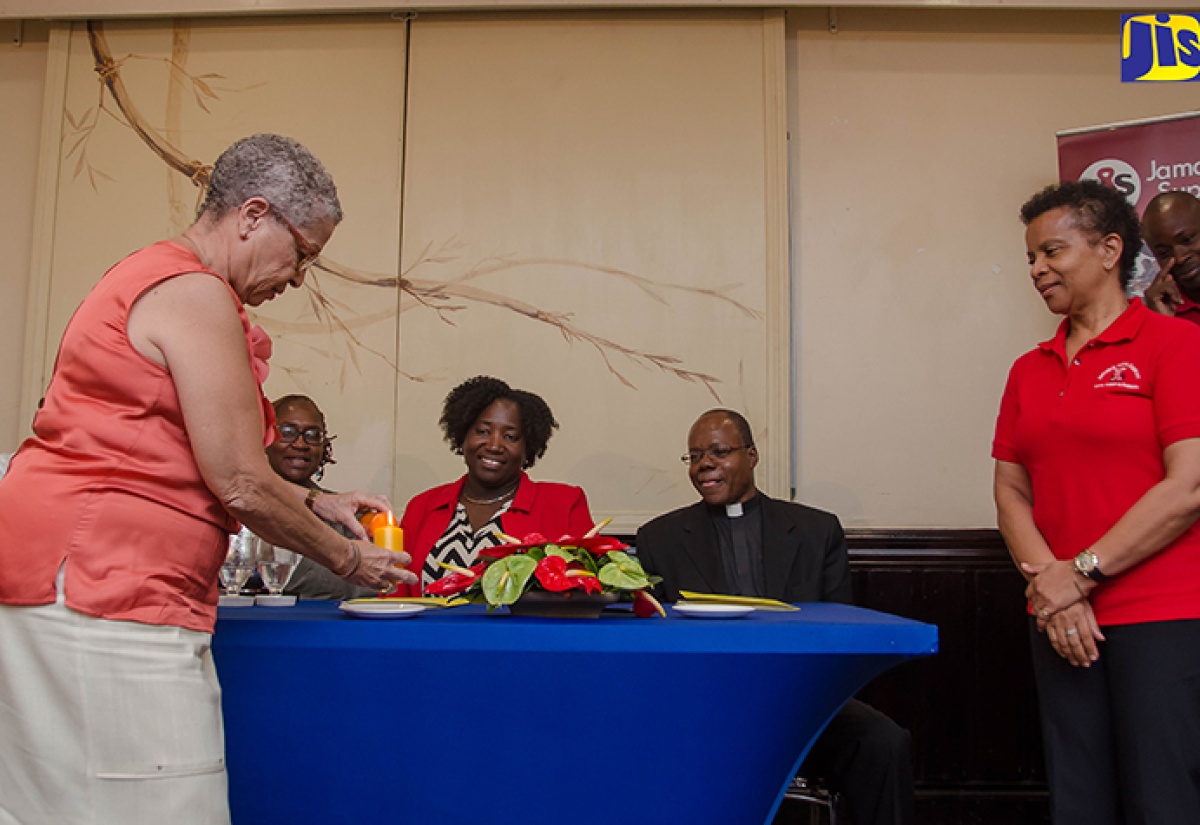Jamaica AIDS Support Launches Year-Long Campaign
By: , November 16, 2016The Key Point:
The Facts
- The public is being encouraged to stand united against HIV/AIDS by showing support and donating to the cause.
- Vice Chair, Jamaica AIDS Support for Life, Althea Bailey, tells JIS News that the public will be invited, via social media and other platforms, to stand united against HIV/AIDS by discussing what they think needs to be undertaken by the Government, civil society and communities.
The Full Story
The Jamaica AIDS Support for Life (JASL) in observation of its 25th anniversary, has launched a year-long public-education drive to raise awareness about HIV and AIDS.
Dubbed ‘Stand United: Love. Action. Support’, the campaign, which starts in January 2017, also aims to fight stigma by sharing stories of people living with HIV.
The public is being encouraged to stand united against HIV/AIDS by showing support and donating to the cause.
JASL is looking to raise US$100,000 to assist children and persons living with and affected by HIV in Jamaica, through increased prevention efforts and sustained treatment programmes. Persons can donate via JASL’s website at www.jasforlife.org
The campaign will cover aspects of HIV prevention and treatment, such as condoms and lubricants, public education and outreach, and pre-exposure prophylaxis (PrEP), post-exposure prophylaxis (PEP) and testing.
PrEP is a way for people who are at very high risk of getting HIV to prevent infection by taking a pill every day. The pill contains two medicines that are also used to treat HIV.
With PEP, this is a way to prevent HIV infection after a possible recent exposure. It involves taking HIV medications as soon as possible (within three days) after a single high-risk event to stop HIV from making copies of itself and spreading throughout the body.
JASL’s campaign will also explore how to address the barriers that prevent the youth, key populations and people living with HIV from accessing the various preventive methods and utilising health services.
Vice Chair, Jamaica AIDS Support for Life, Althea Bailey, tells JIS News that the public will be invited, via social media and other platforms, to stand united against HIV/AIDS by discussing what they think needs to be undertaken by the Government, civil society and communities.
Persons will be asked to submit and share via the JASL social media pages, a photograph of themselves, a word or phrase showing solidarity with the cause, or a short video message (15-30 seconds) explaining what, in their view, needs to be done to reduce HIV/AIDS. The pages are Facebook – @jamaicaaidssupport and Twitter – @JASLtweets.
Persons can also get involved by wearing a red ribbon, acting as role models for how to treat people living with HIV/AIDS, encouraging testing and openness, volunteering, and participating in social media chats.
In the meantime, Ms. Bailey tells JIS News that awareness is critical, as research has shown that many young people do not see HIV as an issue for them.
“It is a non-issue for them, and so we have to continue to keep HIV high on the public agenda,” she says.
She discloses that young people aged 15-24 years are less likely to be tested than those aged 25-49 years.
“Males are less likely to be tested than females. Key populations, including men who have sex with men, and sex workers, are less likely to be tested than members of the general population,” she points out.
She notes that although the JASL has come a far way in terms of response to people living with HIV/AIDS, there is still a lot to be done.
It is estimated that approximately 30,000 persons are living with HIV in Jamaica, but approximately 19 per cent are unaware of their status. The JASL tests and treats an average of 5,000 persons annually.
Established in 1991, JASL is the oldest and largest AIDS-focused, human rights, non-governmental organisation in Jamaica. There are three chapters in the Corporate Area, Ocho Rios and Montego Bay, with headquarters in Kingston.
JASL was charged by the Ministry of Health to continue to work among persons living with HIV, men who have sex with men, and sex workers, as trust has been established through the provision of a stigma-free zone in which everyone could access testing, counselling and treatment, irrespective of sexual orientation, gender, race, occupation, colour, class, economic status or religion.
November 2016 marks 25 years of uninterrupted services provided to persons living with and affected by HIV and AIDS in Jamaica.
Key activities celebrating the milestone include a newspaper supplement on Sunday, November 20, where JASL will celebrate its founders and partners; public forum on HIV treatment, care and prevention on November 23; research dissemination seminar to present findings on transgender women, men having sex with men, sex workers and HIV/STI on November 24; silent protest on
November 25 to mobilise public support to end violence against women and girls; and a candlelight vigil on November 25 to commemorate persons who have lost their lives to HIV and AIDS.


